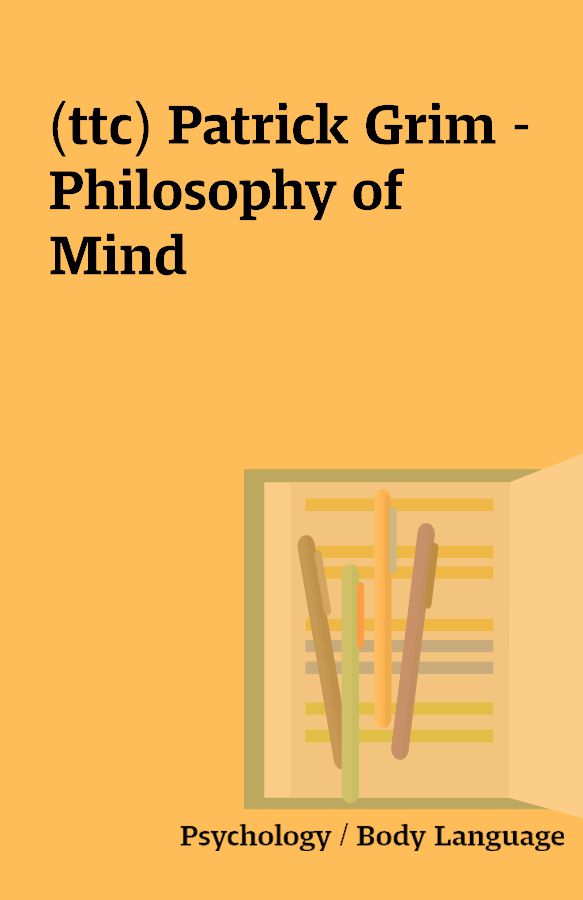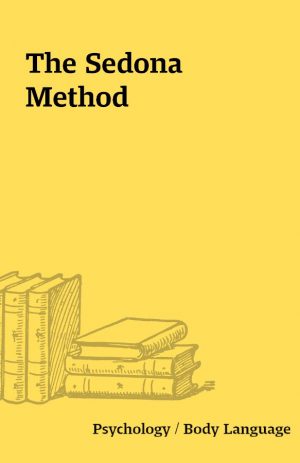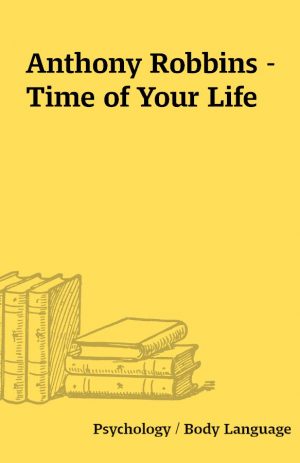(ttc) Patrick Grim – Philosophy of Mind
(ttc) Philosophy of Mind
[DVDrip-25 mkv]
Description
Nothing in the universe is more mysterious than the inner workings of the human mind.* Do other people have a mind like yours and, if so, how do you know?* Is your mind something distinct from your body, or do ordinary physiological processes produce minds?* Can a machine have a mind?* What is consciousness?* Do you have free will?* Is everything you are now experiencing actually happening, or is that an elaborate illusion created by the mind?The mind reels at such questions! But philosophy provides powerful tools for investigating the mysteries of thinking, feeling, and perceiving.What Is Your Mind?The attempt to understand consciousness is the ultimate imperative in philosophical thought and stems from the ancient Greek aphorism, “know thyself.” A simple statement, it nevertheless has vast ramifications for how we understand not only ourselves, but also the people around us.History’s most profound thinkers have spent their lives attempting to answer the deceptively simple question, “what is the mind?” including Aristotle in antiquity, René Descartes in the 17th century, and William James in the 19th century.Questions about the nature of the mind are among the most hotly debated in philosophy today. Today, we are beginning to see the true complexity of this pursuit, as philosophers draw on the latest evidence from neuroscience, psychology, artificial intelligence, linguistics, and other fields to probe still deeper into the inner workings of the mind.One of the most exciting research partnerships in recent decades has been the interdisciplinary study of the mind called cognitive science. It draws on neuroscience to chart how bundles of neurons create minds, psychology to illuminate how minds function, linguistics to explain how minds generate language, artificial intelligence to attempt to reproduce the output of our minds, and other fields to cover the big picture.Try Thought ExperimentsAn amazingly productive technique for studying the mind is the hypothetical scenario, or thought experiment, which helps us grasp these overarching questions and show what a puzzling phenomena the mind is. Some of the fascinating thought experiments you encounter in Philosophy of Mind are:* Brain in a Vat: How do you know you are not a brain in a vat, with a completely simulated life? While plausible as science fiction, this picture assumes that the mind could be disembodied. The neuroscientist Antonio Damasio and others, however, seem to have strong evidence that feedback from the body is essential to forming a mind.* Chinese Room: Imagine a room in which a non-Chinese speaker follows rules for translating Chinese and produces correct answers without understanding the language. In his powerful critique of artificial intelligence, the philosopher John Searle draws a comparison with computers and argues that they can’t have understanding simply by virtue of manipulating rules and symbols.* Life as a Bat: We all know what it is like to be us, but what is it like to be a bat? No matter how much we know about bat physiology, says philosopher Thomas Nagel, it is impossible to know the subjective experience of a bat. Perhaps no subjective state, such as consciousness, can be understood objectively.* The Changing Taste of Beer: Qualia are qualitative experiences such as tastes and smells, but how real are they? As an example, the philosopher Daniel Dennett cites the typical first reaction to the taste of beer: “What awful stuff!” But suppose you become a beer lover—has the taste of beer changed? Do you have different qualia, or do you have the same qualia but are just reacting differently?Explore a Panorama of TheoriesIn Philosophy of Mind, you study all the major theories of the mind, including:* Dualism, which holds that body and mind are separate substances* Behaviorism and Functionalism, which stress behavior and interactions with the world as clues to the mind’s inner workings* Idealism, which views the physical world as an illusion and suggests that only the mental realm exists* “Antitheories” of the mind, which posit that subjective mental experiences are fundamentally inexplicable and will always remain a mystery.These and other philosophical positions all have something going for them. One thinker’s convincing arguments often diverge radically from another’s equally convincing argument, so that a newcomer to the field can’t help but get lost among the contending proposals.Philosophy of Mind expertly sorts out the various approaches to understanding the mind, giving the pros and cons of each in an engrossing survey of complex and often controversial intellectual terrain. The course articulates these intellectual options in service of capturing the excitement of intellectual discussion, never to lay down a single dogmatic position.What You LearnPhilosophy of Mind begins with three case histories emblematic of issues that crop up throughout the course:* Descartes’ Dream: In 1619, the young René Descartes envisaged a new science in a series of dreams. The core of the science was a radical distinction between minds and bodies, and it formed the framework for the mind-body problem that stimulates philosophical debate to this day.* Einstein’s Brain: A strange saga began after the great scientist’s death when his brain was removed without official permission. Its eventual analysis showed that an area associated with mathematical thought had taken over an area associated with language, hinting at the extreme plasticity of brains and minds.* Babbage’s Difference Engine: Designed in the 1800s, this steam-driven device of steel and brass was markedly different from modern computer hardware. It was capable, however, of the same functions as a general-purpose computer, raising the question of whether there is anything about a machine that could possibly make it intelligent or even conscious.You then proceed through a sequence of lectures that cover the basic concepts, classical theories, and latest hypotheses in the philosophy of mind, ending with a discussion of Functionalism, the dominant trend in current research. The next six lectures pursue the theme of Functionalism, concentrating on perception, our conceptions of ourselves, and minds as they function in the world (real robots play an interesting role in this investigation).The next six lectures address questions of human versus artificial intelligence: Just how alike and how different are brains and computers? Philosophy of Mind then concludes with a focus on subjective experience and the continuing mystery of consciousness, with a final lecture that returns to the three emblematic examples from Lecture 1.Probe Your Own MindOne of the most enjoyable features of Philosophy of Mind is the experiments you can do to illuminate surprising aspects of your own mind. Some mind probes you learn about throughout the course include:* An Inner Theater: Imagine a pirate. Now describe him down to the number of buttons on his coat without revising your mental picture. If you had an “inner theater”—a place for fully formed thoughts and perceptions—you should be able to look at your mental image and report everything about it. Chances are, however, you make it up as you go along.* Filling In: By looking at a simple diagram in the Course Guidebook that accompanies this course, you can find your blind spot: the region of your eye lacking photoreceptors, where the optic nerve joins the retina. Normally, we’re unaware of this “hole” in our vision, since the brain fills in an appropriate background. Professor Grim also plays a recording of an intriguing auditory version of this phenomenon.* Phantom Limb: Professor Grim describes an experiment you can perform to fool your mind into thinking that a rubber hand or even a coffee cup is part of your own body. This phenomenon may relate to the similar confusions of “body image” that make some amputees feel sensations in their missing limbs.* Belief and Perception: Does belief drive perception? Apparently not. To prove this, draw a two-inch horizontal line, mark the midpoint, and then draw a two-inch vertical line from that point. You will see that the vertical line looks longer than the horizontal, despite the fact that you measured them to be identical. Your justified belief that they are the same length can’t override your mind’s erroneous perception.Grapple with Endlessly Interesting PhenomenaA thorough exploration of what we know and don’t know abut our mental functioning, Philosophy of Mind is an incomparable introduction to the various issues that revolve around the question of what, exactly, the mind is. It makes you think, evaluate your own opinions, and change your mind not a few times as you grapple with the endlessly interesting phenomena of mind.Full Title: Philosophy of Mind: Brains, Consciousness, and Thinking Machines.Lectures are 30 min each.Course Lecture Titles:01. The Dream, the Brain, and the Machine02. The Mind-Body Problem03. Brains and Minds, Parts and Wholes04. The Inner Theater05. Living in the Material World06. A Functional Approach to the Mind07. What Is It about Robots?08. Body Image09. Self-Identity and Other Minds10. Perception—What Do You Really See?11. Perception—Intentionality and Evolution12. A Mind in the World13. A History of Smart Machines14. Intelligence and IQ15. Artificial Intelligence16. Brains and Computers17. Attacks on Artificial Intelligence18. Do We Have Free Will?19. Seeing and Believing20. Mysteries of Color21. The Hard Problem of Consciousness22. The Conscious Brain—2½ Physical Theories23. The HOT Theory and Antitheories24. What We Know and What We Don’t Knowthere is mp3 version at avi
You must be logged in to post a review.






Reviews
There are no reviews yet.